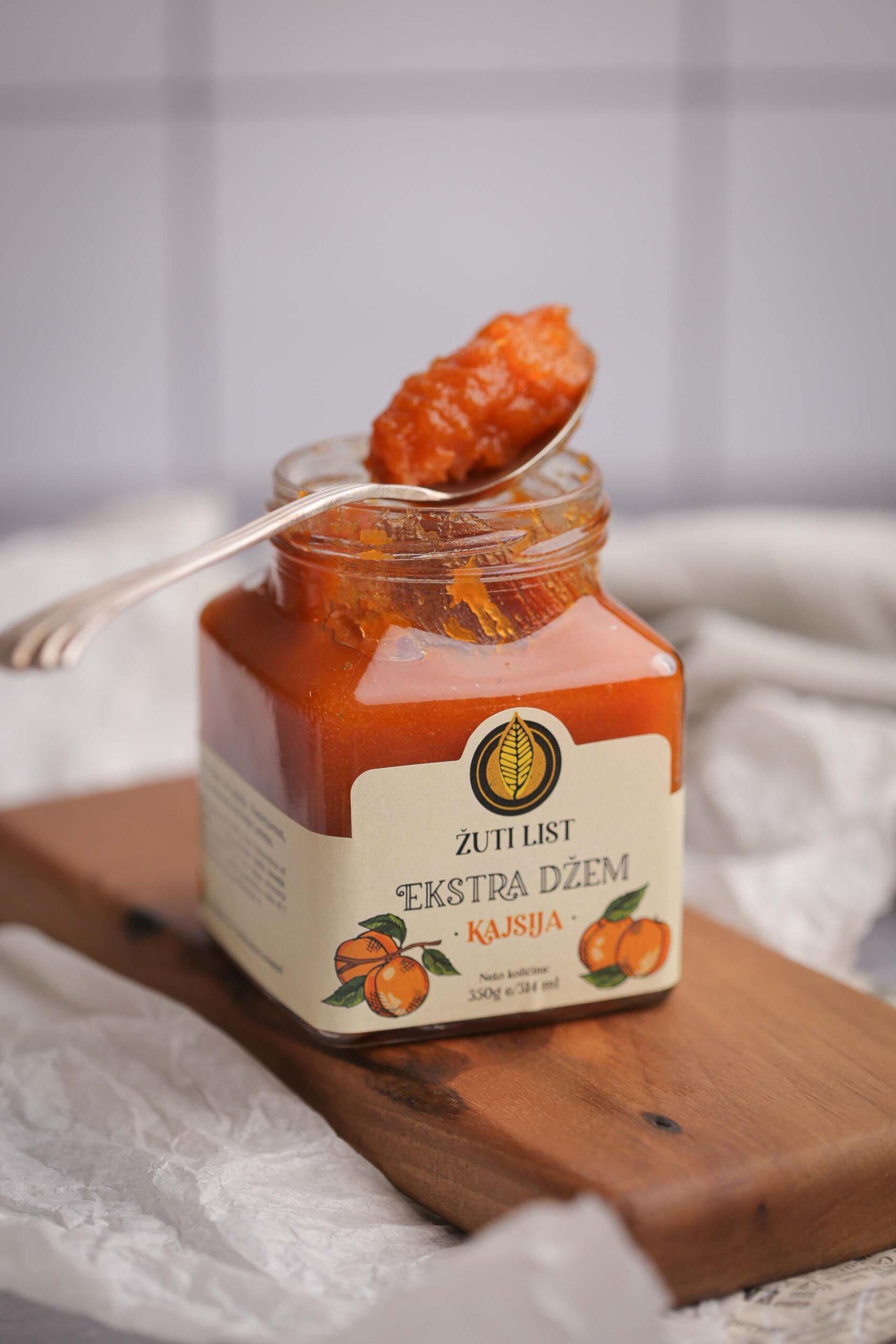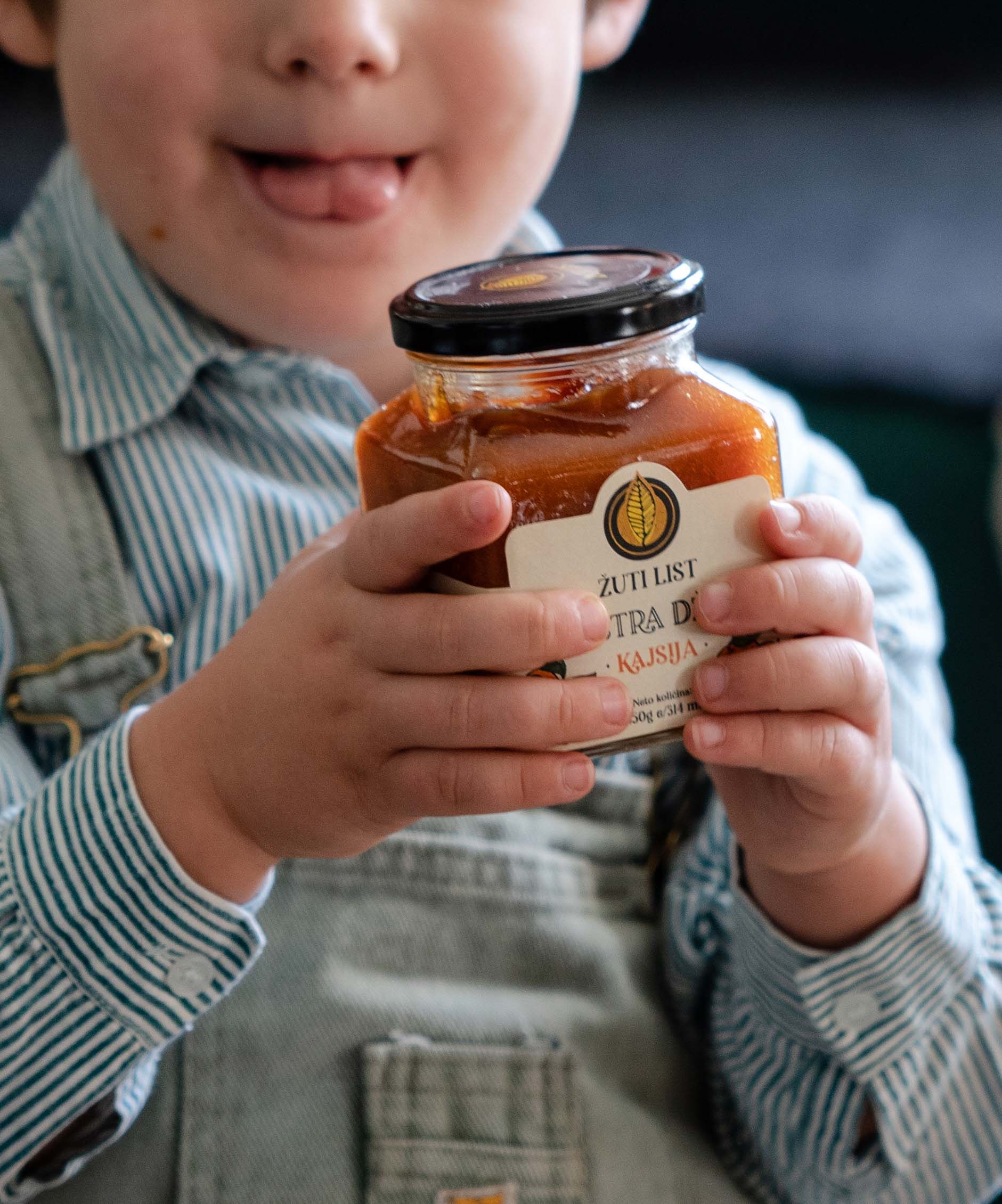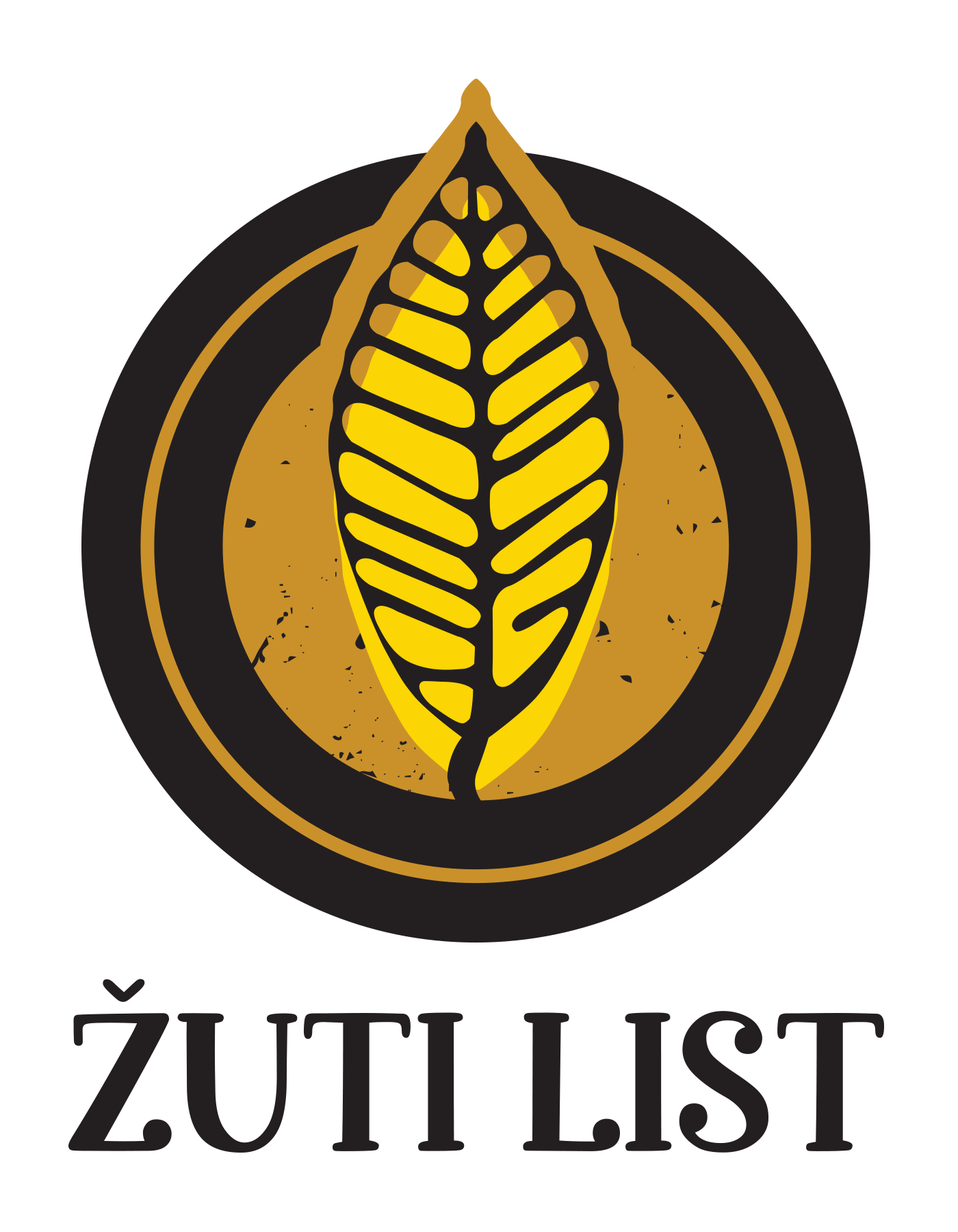There is something about the smell of cooked jam that we can’t explain in words – it grabs our hearts once and takes us right back to childhood. In the courtyards with dirt paths and wooden benches, in the shade under the mulberry tree, where plums were picked in the morning and apricots were hidden in the aprons of grandmothers and aunts. And precisely that moment – that smell, that image, that emotion – is what we constantly strive for in Yellow Leaf.
Forgotten gardens and old plantations
In the south of Serbia, there are still orchards that remember some slower times. Where the roads lead to hamlets with only a few houses, the “real” fruit trees still grow – those that are crooked, branched, maybe irregular, but fragrant, sweet and rich in what industrial varieties are less and less able to offer: character.
Old varieties of apricots that ripen unevenly, wild blackberries from the edges of forests, plums that fall from the branches by themselves when they are ready – these are all precious things that disappear quietly, year after year. And with them, a part of culture, memory, and taste disappears.
Why is it important to save them?
That is why one of the missions of Yellow Leaf is to not only make products from these fruit trees, but also to support small producers who still preserve them. In cooperation with farms from Pusta Reka, Vlasina and the surroundings of Leskovac and Vranje, we choose raw materials that come from orchards that are not “monocultures”, but family properties where you know which apricot is “earliest” and which blackberry has the best color.
Through every jar of jam, we want to support them – those silent guardians of gardens that cannot be industrialized.


More than jam – it’s a memory in a jar
Our jams are cooked slowly, in small batches, without added chemicals. Not because it’s a trend – but because otherwise it wouldn’t be fair to the fruit we choose with so much care.
That’s why we’re not looking for perfection, but for authenticity – that each jar smells like grandma’s stove, that it’s a little thicker where the fruit was smaller, that you can feel the fiber of the apricot or the sour note of the wild blackberry.
Because what makes a product “homemade” is not the label. That’s a story. That’s attention. That’s the area he comes from.
That’s why the Yellow List exists: so that what was worth – remains. And for someone to save it, for those who are coming.
If you are also looking for those old, good tastes – stop by our collection of jams from your childhood . Handmade, from fruits from the south, without haste and without shortcuts.
